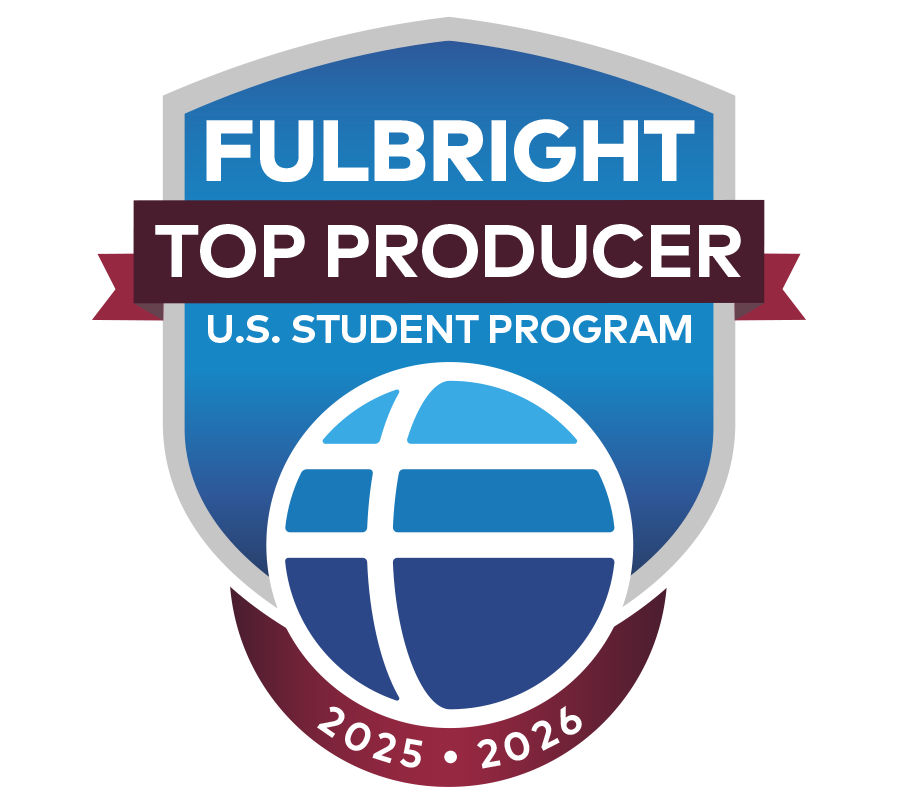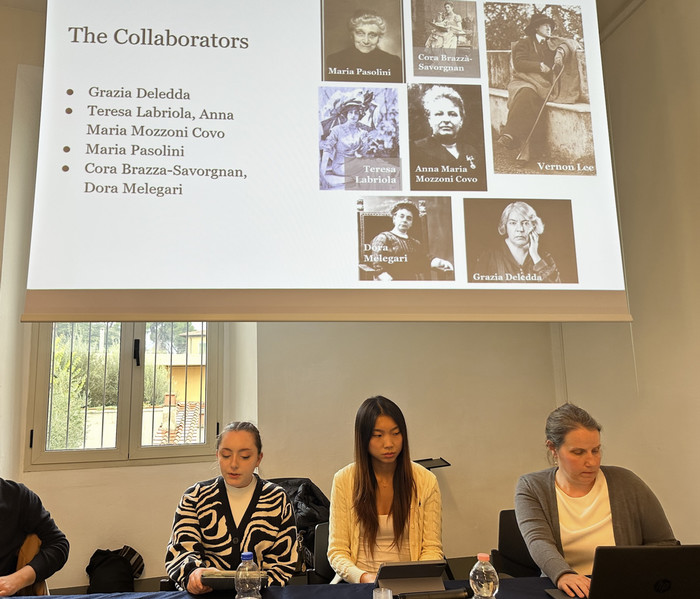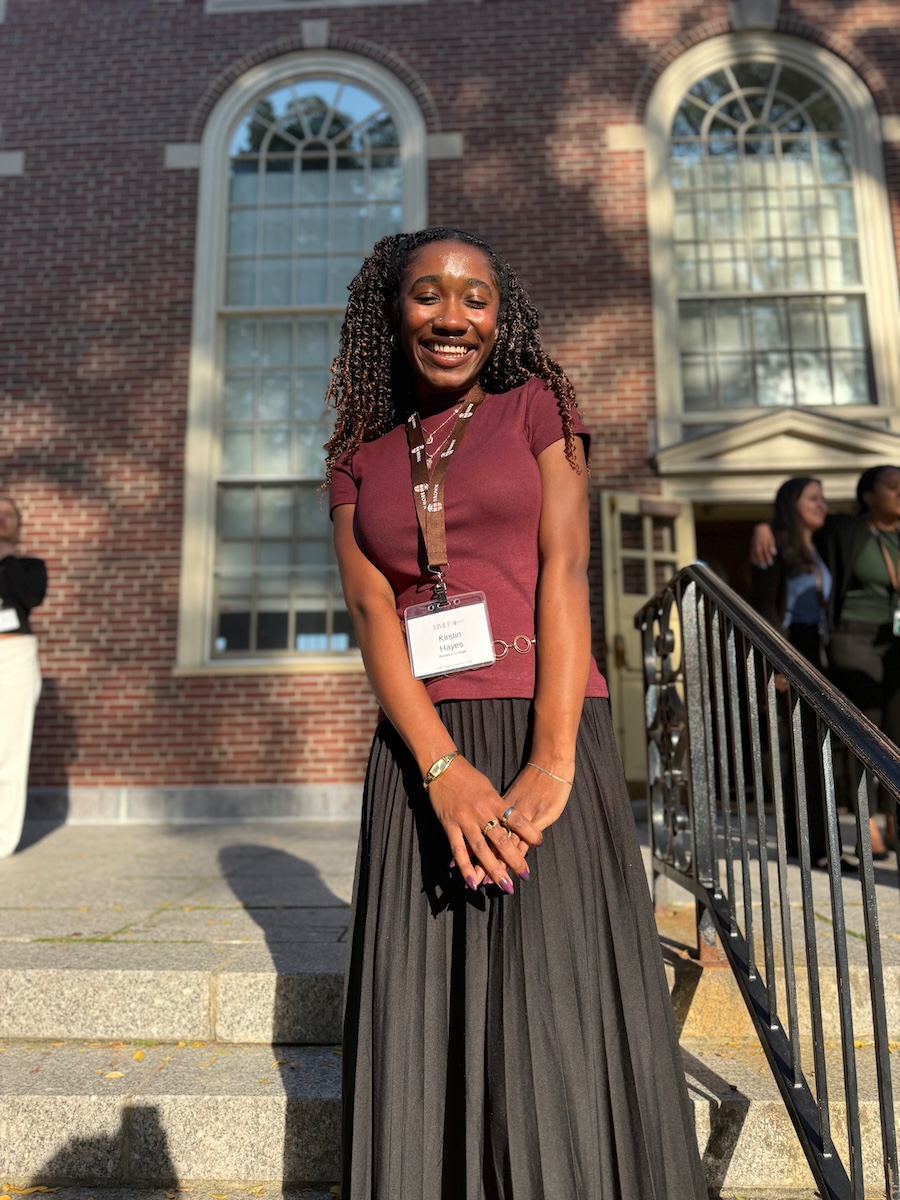Repairing the 'Leaky Pipeline' of Women in STEM: Clare Boothe Luce Fellows Discuss Their Research
By Talia Cowen '16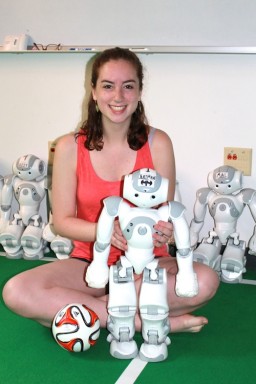
Although Megan Maher ‘16 and Meg Freiberger ’16 received grants to do research on campus this summer, they’ve both spent a good chunk of it outside of Brunswick. Maher was in China for over a week at a the RoboCup WorldCup, and Freiberger spends several days a week at Woods Hole Oceanographic Institution (WHOI) in Massachusetts.
Both Maher and Freiberger are this year’s recipients of the Clare Boothe Luce Fellowship, which is targeted at women doing research in the STEM fields of science, technology, engineering and math.
Maher, a math and computer science double major, is researching and coding obstacle detection for the robots used by Bowdoin’s Northern Bites RoboCup team, which is one of the few undergraduate teams that compete in the international league of soccer-playing robots. The point of this competition is to encourage students to design highly functioning robots that can independently play the game.
In the past, the team’s high-tech robots used sensors on the robots arms to detect obstacles and other robot players. “This year, we had a number of students rewrite the vision system in our code base, so that provided a lot of opportunities using this new vision system,” Maher said.
While Maher programs robots, Freiberger is exploring a more natural phenomena, though she is incorporating high-tech instruments into her research as well. Freiberger, a chemistry and earth and oceanographic science double major, has been traveling from Bowdoin to The National Ocean Sciences Accelerator Mass Spectrometry (NOSAMS) facility at WHOI. There, Freiberger can turn her samples into graphite to be run on the accelerator mass spectrometer to measure the amount of radiocarbon (carbon-14) in each bamboo coral sample.
This radiocarbon data is then utilized to find growth rates that can assign dates to elemental data obtained from the corals using laser ablation mass spectrometry. Working with Assistant Professor of Earth and Oceanographic Science Michèle LaVigne, Freiberger is essentially attempting to evaluate the potential for this elemental data to serve as proxies for ocean conditions, like nutrients and temperature, in the 1000m deep environments where these corals live. The goal is to better understand how oceans have been affected over time by natural decadal variability as well as climate change. Because there is no instrumental data before the 1950s, paleoceanographers use methods like this to determine what past oceans looked like and to anticipate future changes.
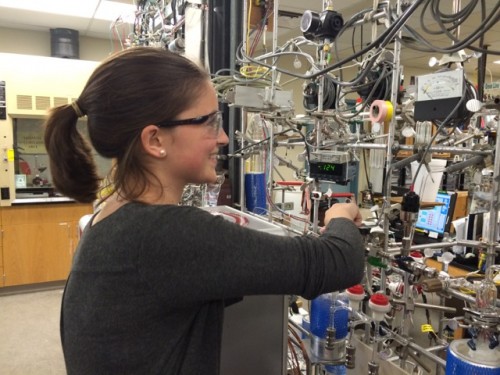
While Freiberger and Maher highlighted the encouragement their professors and peers at Bowdoin have given them to pursue an education and career in STEM fields, they both admitted they are concerned about the environments they might encounter after they graduate.
“One of the things we talk a lot about in science in general, but especially in oceanography, is what we refer to as a ‘leaky pipeline,’” Freiberger said. “We’re now in a position where the number of STEM degrees for men and women are somewhat the same, and the problem now is what happens after that. So, although the percentage STEM degrees is roughly the same, it’s not reflected in the number of tenure-track positions and really intensive research positions [for women].”
Freiberger said she discusses with LaVigne and the other women in her lab group about how to best combat the leaky-pipeline problem “and how we can get ourselves involved and be proponents of women in this field.”
The story is similar for RoboCup. While Bowdoin’s team actually has more women than men, Maher said this does not remain true at the competition level. “Last year, at RoboCup 2014 in Brazil, many of the teams were all male. Our team had the largest ratio of women to men in our league, by far,” Maher said.
Although she saw improvement at this year’s competition in China, Maher said computer science still has a lot more work to make the field welcoming for women. “I’m hoping that with each passing year, more women will pursue STEM fields, with help from fellowships like Clare Boothe Luce,” she said. “It’s an amazing time to be part of this field, and I hope that we women already involved can provide encouragement and support for other young women interested in STEM.”
